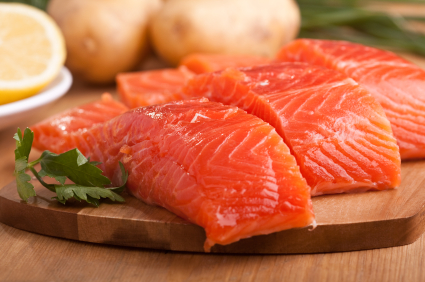Not All Calories Are Created Equal
For decades, we've been taught that weight loss comes down to the simple idea of "calories in versus calories out." This equation is simple and can not be escaped. To lose weight, you must take in fewer calories than you consume, whether this be achieved by creating a calorie deficit via a reduced-calorie diet, an increase in physical activity, or a combination of both (which has been proven to be the most successful method). The weight-loss industry makes billions of dollars each year trying to cash in our desperate attempts to curb this obesity epidemic that has plagued America, but is it possible that it's more complicated than the old adage, "move more, eat less"?
Employing basic, simple, maintainable strategies to reducing total calories has been proven to be the most effective for successful long-term weight loss. The basics include watching portion control, limiting high-calorie foods, and increasing exercise. While it's still true that a calorie is a calorie regardless of what food it came from, not all calories are created equal in the sense that foods will have different effects on your body - even if two foods are identical in their calorie contents.  Fiber
Fiber
For example, consider foods that contain fiber. Fiber-rich foods, which include fruits, vegetables, whole-grains and legumes, require more chewing. This helps prevent overeating because it slows down your eating, giving your brain time to recognize that you're full. Fiber isn't fully digested by your body, so this nutrient contributes health benefits without adding significant calories to your diet. Additionally, fiber has also been proven to help improve gastrointestinal function, lower blood cholesterol, and reduce the risk of diabetes and cardiovascular disease. Fiber may also prevent some types of cancer.
Protein
Your body burns more calories digesting and metabolizing protein than it does digesting other nutrients. Protein slows the time it takes for food to move from your stomach to your intestines, helping you feel full longer. Additionally, getting adequate protein ensures that you build and maintain muscle mass, which incinerates calories. Protein also curbs your appetite by stabilizing blood glucose levels. Rapid rises and drops in blood glucose levels that occur after consuming simple carbohydrates sends your hunger soaring. Consuming protein with meals prevents this.  Fats
Fats
Healthy fats also aid in weight loss because they promote satiety. While consuming too much fat in general can lead to weight gain, it's important to consume enough calories from healthy, unsaturated fats. Saturated fats and trans fats, found mainly in fried foods and animal products, can clog your arteries, increasing your risk for heart attacks and strokes. So while a gram of fat contains 9 calories regardless of the type of fat, unsaturated fats are healthier for you.
Liquid Calories
Be careful to not ingest too many liquid calories. Liquid foods move through the body quickly and don't provide the same sense of fullness and satisfaction as solid foods. This is why 100 calories of liquid won't satisfy you like 100 calories of solid food would, even though mathematically they are identical.
A diet that centers around a healthy balance of nutrients with an emphasis on portion control and increasing nutrient-dense foods is key to achieving and maintaining not only a healthy weight, but a healthy body, inside and out.
Kari Hartel, RD, LD is a Registered Dietitian and freelance writer based out of St. Louis, MO. Kari is passionate about nutrition education and the prevention of chronic disease through a healthy diet and active lifestyle. Kari holds a Bachelor of Science in Dietetics from Southeast Missouri State University and is committed to helping people lead healthy lives. She completed a yearlong dietetic internship at OSF St. Francis Medical Center in Peoria, IL, where she worked with a multitude of clients and patients with complicated diagnoses. She planned, marketed, and implemented nutrition education programs and cooking demonstrations for the general public as well as for special populations, including patients with cancer, heart disease, diabetes, Alzheimer's disease, obesity, and school-aged children. Contact Kari at [email protected].
-
How To Get Rid Of Lower Belly Fat: Five Ideas To Reduce Abdominal Fat!
Do you desire to understand how to get r
-
Sleep May be the Key to Successful Weight Loss
Amazing as it may sound, sleep may be the missing link to achieving
-
Lose The Pounds And Not The Fun – Easy Weight Loss Advice
It can seem like an insurmountable task to shed the pounds, part
-
The Most UnderRated Aspect Of Weight Loss
If I were asked, what is the most difficult thing many people find to
-
You Cant Use Your Age As An Excuse To Be Overweight.
You probably already know that gaining w
-
How TVs Jillian Michaels Can Help You Lose Weight
If youve seen her transform contestants
- DON'T MISS
- Walk That Weight Off You Can Do It
- Poor Weight Loss Advice 10 Red Flags
- Convenience Food Tips
- Weight Loss Drug With Least Side Effects
- Are You Snacking Enough To Lose Weight
- Energize Yourself by using Effective HGH Supplements
- Lose Weight With One Simple Mindset
- Several of The Best Ways to Increase Your Metabolism
- Superfoods for Healthy Hair
- Achieving Your Goals: Lifestyle Changes




